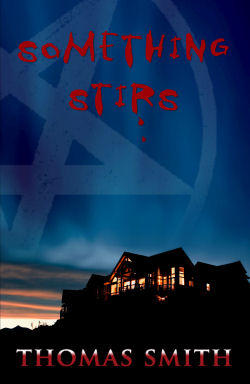|
If
you write long enough, be ready to answer three questions. They come up
at cocktail parties, church, PTA meetings, the doctor’s office (even
during the turn your head and cough part of the
examination . . . you don’t want to know), the dentist’s chair, choir
practice, the grocery store, during interviews, and with friends at
those little round tables at the coffee shop.
They are questions you really
should examine in some detail, because they also form the core of who
you are (or will be) as a writer. They are The Big Three.
Where Do You Get Your
Ideas?
I have two standard answers. (1)
I subscribe to a service in Moose Town, Montana, where, for $15, they
send me twenty-five of James Patterson’s leftover ideas every month.
(2) Out of my head.
Yes, #1 is a smart-aleck answer,
but folks will probably ask you for the address, so use it cautiously.
But the second answer is where the truth lives, because your ideas do
indeed come from your head. That’s where the brain lives, and the brain
is in charge of developing and dispensing ideas. Otherwise, it would
just be called the lesser kidney or the pancreas’ second cousin once
removed.
Granted, you may read a
newspaper headline (“Charlie Sheen Says Lindsay Lohan Needs Help”), see
a TV news story (“Record catfish caught in Brandilyn Collins’ bathtub …
film at 11:00”), or hear a snippet of a conversation (“Then I was,
like, no way. Elvis was, like, ancient when he died in the 1800s.”),
and the brain juices start bubbling (?). Or you may have a what-if
moment (What if Star Wars is reality and we are all
part of a bad novel being read by Chewbacca?). From that point, once
the seed of the idea has been planted, you begin to turn the idea over
in your mind (that’s one of the filing cabinet drawers in your brain);
examine it from all angles; combine it with your own experience,
knowledge, research, fantasies, and any other information that adds to
the original idea and creates a new idea.
In short, we gather information
every day of our lives: sights, smells, thoughts, emotions, feelings,
and hundreds of other stimuli. And all of them are part of the answer
to the “Where do you get your ideas?” question. Why does someone come
up with different ideas from yours? The same reason your ideas are
different from mine or anyone else’s. We’re all different. Our
experiences are different. We all see things differently and apply
different lenses to what we experience. And that leads to different
ideas. Your ideas.
Will You Read My
Manuscript?
The polite answer is “Thank you
for asking, but I really can’t right now.”
The real answer? It all depends.
If you are part of a critique
group, that’s one thing. Members expect to read portions of manuscripts
and have portions of their manuscripts read in return. Or maybe you
have a good friend who wants to try his hand at writing and asks you
for help. Judging writing contests and/or providing paid consultations
at conferences demands it. If you are in a mentoring situation, reading
part or all of a manuscript is not out of the ordinary.
But reading a manuscript implies
you will have to critique at least part of it, and that is rocky ground
to tread indeed.
People who are on the receiving
end of having their manuscripts read fall into two categories: Those
who want an honest critique, and those who want to hear how good their
writing is. Care to guess which seems to be the most prevalent? To be
honest, we all want to hear how good our writing is. We want to think
that Jerry Jenkins will have to take a smaller advance on his next book
so a publisher will have enough to pay us what we are worth. But the
mark of a true professional (or a serious professional-in-training), is
the ability to take the positive parts of a critique and discover if
the result can be duplicated, and the ability to hear what didn’t seem
to work and try to fix it.
A
few years back I was at a conference with a fairly famous writer friend
of mine. One of those NY Times best seller folks.
He agreed to look at a manuscript, and what he read was pretty
|
bad.
When the shining-faced lady came back the next morning, he said, “I
won’t do you any favors by lying, so here it is. This manuscript needs
a lot of work. I marked the first ten pages for you, but it’s going to
take a lot of work to bring this up to a publisher’s standards. The
thing is, there’s some real passion here, but it needs to be
channeled.”
She looked at all the
proofreader marks (the pages looked like they were bleeding), sighed.
“I guess I had better go look up what all these marks mean and get to
work.”
As she headed to the elevators,
he stopped her. “Aren’t you going to the panel discussions this
morning?”
Her response: “Not until the
second one. I’m not really into Science Fiction and Social
Responsibility, so that gives me fifty minutes to work on this.”
They spent the next fifty
minutes at a table in the bar working on it together.
Later in the day he commented on
another manuscript. “You know, I really liked this. The idea was
interesting and the writing really snaps. The only thing I would look
at is the character on page six. He really doesn’t move the story
along. Why not just get rid of him?”
The response: “Well nothing
personal, but you don’t know everything.” With that the fledgling
writer promptly walked off and dropped the manuscript in the nearest
trash can.
Which one do you think was
eventually published?
Do You Have a Real Job?
Oy vey
(Yiddish for “What’chu talkin’ ’bout, Willis?”)!
People mean well, but the idea
that someone can make a living (or even bring in enough extra money to
matter in the family budget) as a writer really seems to knock some
folks for a loop. When I worked for a small publishing company and was
writing my own projects at night and on the weekends, folks thought I
was nuts to want to leave that behind and spend my days hitting the
gym, making a pot of coffee, and spending the rest of the day at my
desk pecking away at the keyboard.
But it’s my
desk. In my office. My dream come true. And my
answer to them is simple. That is my job. I’m a
writer.
Bonus Question
Okay, there is one more question
you’ll get: What do you write?
My favorite response: “Words
mostly, but I sprinkle in a few numbers sometimes just for kicks.”


|









